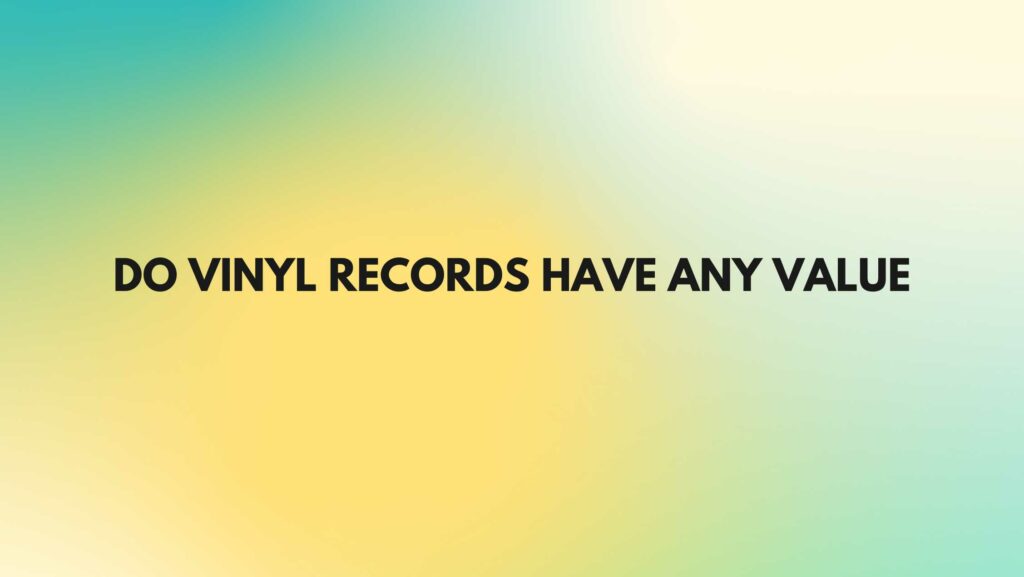In an age dominated by digital streaming and MP3s, the resurgence of vinyl records may seem surprising to some. However, vinyl records have indeed made a remarkable comeback in recent years. While many people enjoy vinyl for its unique tactile and analog qualities, others are drawn to it as a collector’s item. In this comprehensive article, we will explore the value of vinyl records, both in terms of the listening experience and their potential monetary worth.
Part 1: The Value of Vinyl Records as a Listening Experience
Vinyl records hold significant value for audiophiles and music enthusiasts for several reasons:
- Sound Quality:
- Vinyl records offer a warm, analog sound that many find more pleasing and immersive compared to digital formats.
- Audiophiles often appreciate the tactile and analog nature of vinyl playback, with the subtle pops and crackles adding to the experience.
- Album Artwork and Packaging:
- Vinyl records often feature larger album artwork and elaborate packaging, providing a more visually appealing and immersive experience.
- The physicality of vinyl records adds a unique dimension to the music-listening experience.
- Collectibility:
- Limited editions, colored vinyl, and special pressings make vinyl records desirable collector’s items.
- Many albums released on vinyl come with bonus materials like lyric sheets, posters, or exclusive content.
- Sentimental Value:
- Vinyl records often carry sentimental value, as they can be passed down through generations and evoke memories of a particular time or place.
- Resale Value:
- Some vinyl records increase in value over time, making them a potential investment.
Part 2: Factors That Influence the Monetary Value of Vinyl Records
While not all vinyl records are valuable in monetary terms, several factors determine their worth:
- Rarity:
- The scarcity of a particular record can significantly impact its value. Limited pressings, one-offs, or albums from obscure artists are often more valuable.
- Condition:
- The condition of a vinyl record is critical. Records in near-mint or mint condition are typically worth more.
- Factors like scratches, warping, and wear can diminish a record’s value.
- Artist and Genre:
- Well-known artists or iconic albums tend to be more valuable. Records from genres like classic rock, jazz, and punk often command higher prices.
- First Pressings:
- The first pressing of an album is usually more valuable than later reissues or reprints.
- Special Features:
- Records with unique features, such as colored vinyl, special packaging, or promotional materials, are often more collectible.
- Historical Significance:
- Records associated with historical events, significant cultural moments, or groundbreaking music movements can be highly sought after.
- Demand and Trends:
- Current trends and the demand for specific artists or genres can influence a record’s value.
- Authentication and Documentation:
- Having a record’s authenticity verified by a reputable source and possessing relevant documentation can increase its value.
Part 3: Examples of Valuable Vinyl Records
To illustrate the potential value of vinyl records, here are a few notable examples:
- The Beatles – “The White Album” (1968):
- Early pressings of this iconic album in pristine condition can fetch a substantial price, especially if they contain the original poster and individual portrait inserts.
- Pink Floyd – “The Wall” (1979):
- First pressings of this classic rock album, particularly those with the original stickers and inserts, are highly sought after by collectors.
- Elvis Presley – “That’s All Right” (1954):
- This single, often considered Elvis’s debut, is incredibly rare and valuable, with some copies selling for thousands of dollars.
- The Sex Pistols – “God Save the Queen” (1977):
- Limited to 25,000 copies, this punk rock single is a highly coveted collector’s item, especially if it’s still sealed.
- Prince – “The Black Album” (1987):
- Prince’s unreleased album, known for its mysterious history, has become a valuable collector’s item.
Conclusion
Vinyl records hold both intrinsic and monetary value. For music enthusiasts, they offer a unique and immersive listening experience, harkening back to a time when music was a tangible and physical medium. For collectors, vinyl records can be valuable investments, with certain rare and iconic albums appreciating in worth over time.
While not all vinyl records are valuable, factors like rarity, condition, artist, and historical significance can significantly influence their monetary worth. If you’re considering collecting or investing in vinyl records, thorough research, careful preservation, and a passion for music are essential. Ultimately, the value of vinyl records extends beyond their price tag, as they continue to evoke nostalgia, passion, and a deep appreciation for the artistry of music.


